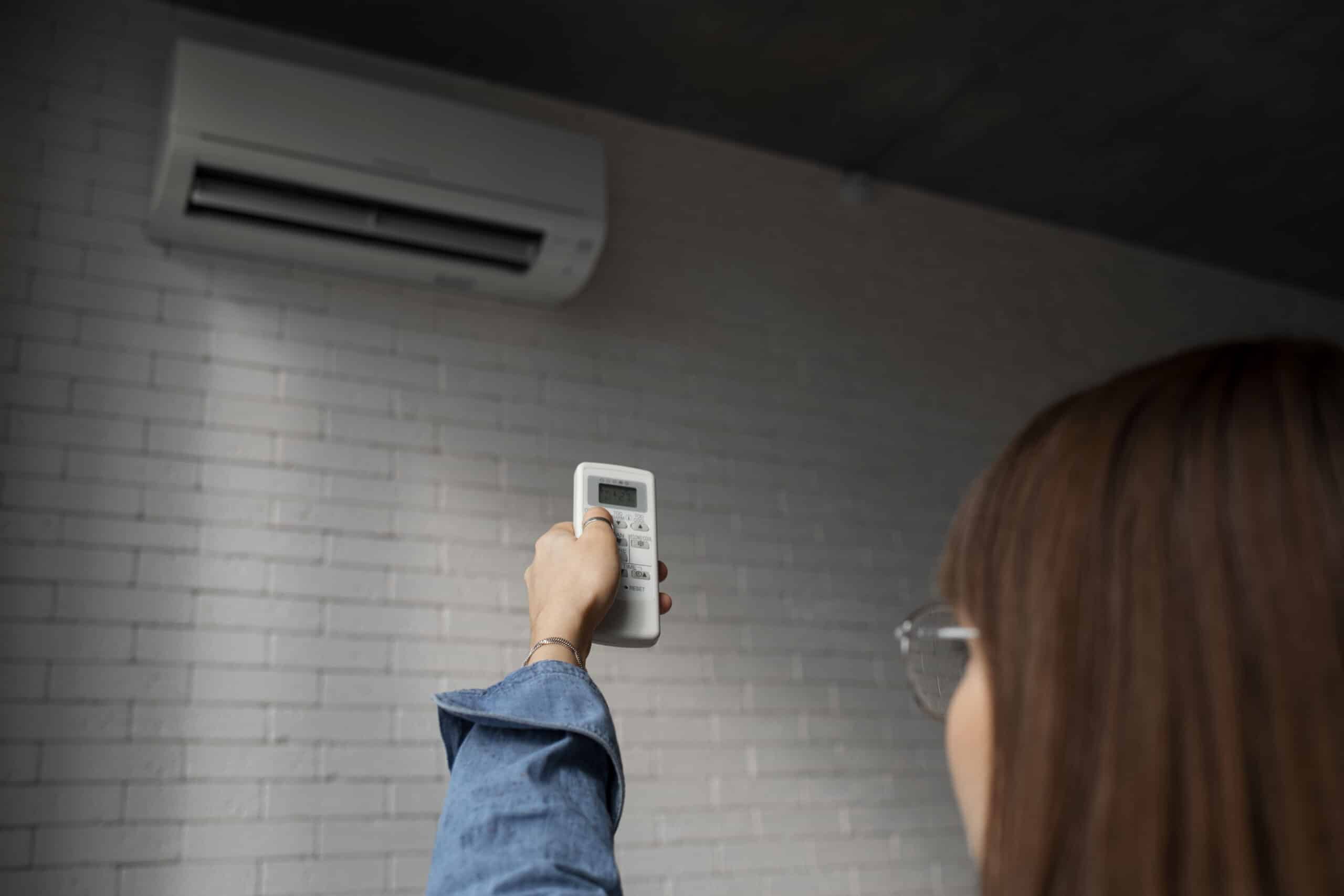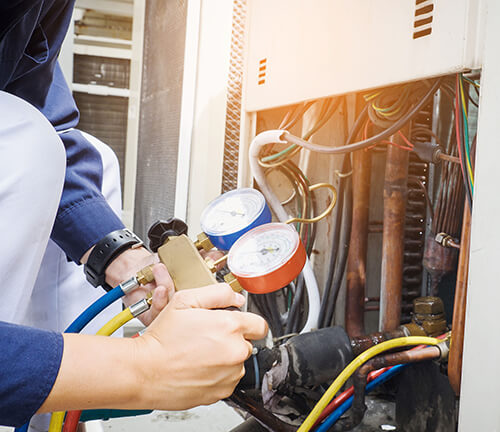How to Choose the Right Cooling And Heating System for Your Needs
Choosing the suitable A/c system is a vital choice that needs cautious consideration of various aspects. The myriad of system types readily available can complicate this process, leading one to ask yourself which course ultimately leads to optimum convenience and efficiency.
Assess Your Home Dimension
Evaluating your home size is a vital very first action in choosing the appropriate heating and cooling system. The dimension of your home directly influences the cooling and heating capacity required for efficient environment control. A cooling and heating system that is as well small will certainly battle to maintain comfortable temperatures, causing boosted power usage and use on the unit. Conversely, an extra-large system can result in short cycling, insufficient humidity control, and inefficient operation.
To precisely evaluate your home size, measure the square video of each area, thinking about variables such as ceiling height and the design. Additionally, take into consideration the insulation high quality and the variety of home windows, as these elements affect thermal performance. Houses with open layout may call for various system arrangements compared to those with numerous divided areas.
Using the Guidebook J tons calculation technique can provide a much more specific price quote of your heating and cooling requires. This technique accounts for different elements, including regional climate, solar gain, and tenancy patterns. By thoroughly assessing these aspects, you can make certain that your selected HVAC system is appropriately sized, bring about boosted convenience, energy performance, and longevity of the equipment.
Determine Your Spending Plan
Determining your budget plan is a crucial step in the a/c system option process, as it establishes the specifications for your options - DMAKS HVAC. An a/c system is a substantial financial investment, and recognizing your financial restrictions will certainly help limit selections that fit within your methods
Begin by examining not just the initial purchase price but also installation expenses, which can vary substantially depending upon the intricacy of the job. Think about recurring expenditures such as maintenance, repair work, and energy consumption. A system may show up cost effective at first yet can bring about higher costs over time if it is much less efficient.
It is recommended to allocate a contingency fund for unexpected expenditures that may develop during installation or initial system changes (DMAKS HVAC). Furthermore, discover financing options or rebates that might be offered, as these can reduce the concern of in advance costs
Inevitably, having a clear budget permits you to involve with heating and cooling experts better, guaranteeing you obtain tailored advice that straightens with your monetary objectives and home needs. By being diligent regarding your spending plan, you can make enlightened choices that improve convenience without compromising financial stability.
Evaluate Power Performance
Power performance plays a vital role in the total performance and cost-effectiveness of your HVAC system. When picking a system, it is necessary to consider its power effectiveness ratings, as these numbers directly affect your utility costs and ecological impact. Try to find systems with a high go to this website Seasonal Power Effectiveness Proportion (SEER) check my site for cooling and a high Yearly Fuel Usage Performance (AFUE) score for home heating. Higher scores show higher efficiency, implying more comfort for less energy consumption.
Furthermore, think about the Energy Celebrity accreditation, which signifies that the system satisfies strict performance guidelines set by the Epa. Purchasing a Power Star-rated heating and cooling system can result in significant cost savings over time, particularly in areas with extreme temperature changes.
Another aspect to assess is the system's size and capability. A large or undersized device can lead to inefficiency and boosted energy prices. DMAKS HVAC. Appropriate sizing, commonly established via a Hands-on J lots estimation, guarantees that the system runs at optimal effectiveness


Consider Climate and Atmosphere
When choosing an a/c system, it is important to take into consideration the regional environment and environmental problems, as these factors dramatically influence the system's efficiency and efficiency. Different regions experience varying temperature extremes, humidity degrees, and seasonal adjustments, all of which influence home heating and cooling down demands.

In addition, local environmental factors, such as air quality and potential irritants, must inform your choice. Equipments equipped with sophisticated filtering innovations can aid alleviate pollutants and supply cleaner air. Additionally, consider the energy resources offered in your area-- some HVAC systems are extra efficient when powered by gas or renewable resource sources.
Eventually, straightening your cooling and heating system choice with your neighborhood climate and environmental factors to consider will certainly bring about enhanced convenience, enhanced efficiency, and lower power expenses.
Explore System Types and Attributes
As property owners seek to optimize convenience and efficiency, discovering the different kinds of heating and cooling systems and their one-of-a-kind attributes ends up being essential. The primary sorts of a/c systems consist of central air conditioning, heatpump, ductless mini-split systems, and heaters. Each system uses unique benefits customized to different requirements and choices.
Central wikipedia reference air systems offer consistent air conditioning throughout a home, making them ideal for bigger spaces. Heatpump act as both heating and cooling down options, making use of electrical energy to move warm, which can lead to lower energy costs. Ductless mini-split systems are ending up being progressively popular because of their versatility and ease of installation, enabling home owners to manage the temperature in specific areas without substantial ductwork.

Verdict
In conclusion, picking the suitable cooling and heating system requires mindful factor to consider of numerous aspects, including home dimension, budget constraints, power effectiveness, neighborhood environment, and readily available system kinds. An extensive evaluation of these aspects guarantees ideal comfort and cost-effectiveness. By adhering to a structured strategy, home owners can make enlightened choices that line up with their specific requirements and preferences, eventually leading to boosted indoor air quality and energy cost savings.